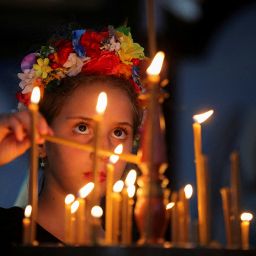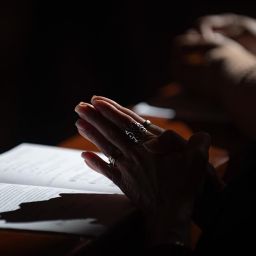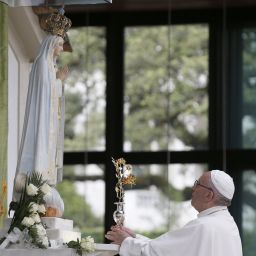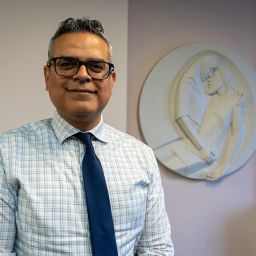By Amy White
The Texas Catholic
Parents of children with disabilities are a valuable part of the community of faith and are worthy of support and accompaniment from the Church, Peter Ductrám said.
Ductrám, the Diocese of Dallas senior director of ministries, recently completed a qualitative research study on parents of children with disabilities, which was published Sept. 16 in the “Journal of Disability & Religion,” one of the leading academic journals on the topics of disability, religion, and Christian anthropology.
As the parent of a child with multiple disabilities, Ductrám personally knows the joys and challenges that caring for a loved one with disabilities may entail.
“As a father, I have witnessed firsthand how difficult it is for parents to maintain the faith in the midst of the struggles that we encounter in requesting care for our kids,” he shared. “We see that many people are turning away from churches because they are not equipped to accompany them.”
His research, distilled into the article “Parents of Children with Disabilities: Strengths and Frailty of Human Faith Journeys,” investigates the faith journeys of parents of children with disabilities. The purpose of the study is to learn more about these groups, including the blessings and challenges they experience; to share their stories with the wider academic and ecclesial world; and to offer concrete pastoral recommendations based on the research.
Hope in tension
To conduct his research investigation, Ductrám identified 20 couples from six states—California, Florida, Illinois, Maryland, Oregon, and Texas—who are parents of children with disabilities. This research study was saturated when the interviews reached seven participating parents, each of whom cares for children with severe intellectual and development disabilities, has remained married since the child’s diagnosis, and continues to participate in ministry.
In the course of his interviews with these parents, Ductrám said, five themes emerged.
First, “Family and community support fades over time,” Ductrám explained. “As the child grows—first year, second year, third year—they all experience the absence of family, of the larger family, and the community… They felt they were left alone.”
Participants painted a picture of diminishing invitations to birthday parties, field trips, and family reunions. One parent described the experience as a kind of increasing isolation from “all the things that were once part of your life and your world,” according to Ductrám’s article. Without community support, all seven of the participants said, the ongoing challenges of caring for their children could be strenuous.
A second emergent theme was the centrality of faith. In the midst of caring for children with significant needs, the participants explained that they had turned to God with their prayers and their questions.
“They said that they developed this sense of trust in the Lord,” Ductrám shared. “They can ask the Lord and challenge the Lord: Why? Why am I going through this, Lord?”
Some participants also mentioned that their children demonstrated a deep internal disposition toward God, despite the difficulties that these families often face when trying to be involved in a parish community that has not adapted to the needs of their children.
A third theme was the profound impact of the child’s disability on the marriage of the parents. Some parents expressed that they had even considered separation “to spare the [other] spouse from the care of the child,” Ductrám said.
The research also uncovered two additional trends: a higher sense of empathy for other families in similar situations and a profound sense of the Church as a “safe space,” despite the frustrations parents may feel when faced with insufficient resources for their families.
“Parents see the limitations in Church leadership but recognize the importance of participating in parish life and communal expression of faith,” Ductrám wrote in his research article. “There is a sense of hope in constant tension.”
Pulling from the findings of his research, Ductrám puts forth three pastoral recommendations in his article: the embrace of a spirit-focused ecclesiology, a dialogical catechesis, and an understanding of ministry as a “laboratory of dialogue.”
Mother Church
Considering the results of his research, Ductrám stated that the Church, faithful to Christ’s teachings, must address the “concerns, the pains, the struggles of everybody as we are walking together towards the encounter with the Lord.”
“Everybody needs a community of faith—everybody, including those who have severe disabilities,” Ductrám said.
A parent participating in the research study, referred to as “Valerie,” said of the Church’s role, “[The Church] is called to be unafraid to share in the suffering of others. They do not flee from painful situations. They discover the meaning of life by coming to the aid of those who suffer, understanding their anguish and bringing relief. They sense that the other is the flesh of our flesh and are not afraid to draw here [and] even touch their wounds.”
Cutline for featured image: Gabby Ortega assists her son, Peter Ortega, as the lectors at St. Francis of Assisi Catholic Church’s first sensory-friendly Mass in on Palm Sunday, April 10, 2022, in Frisco. (Courtesy photo)















